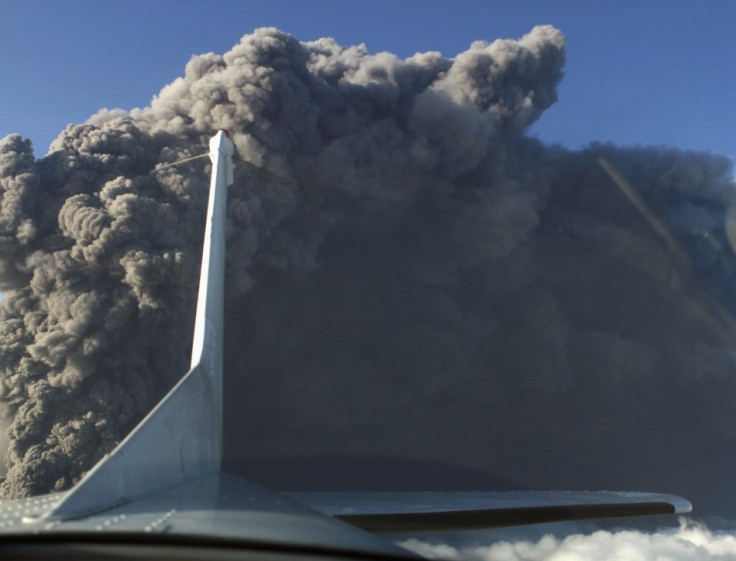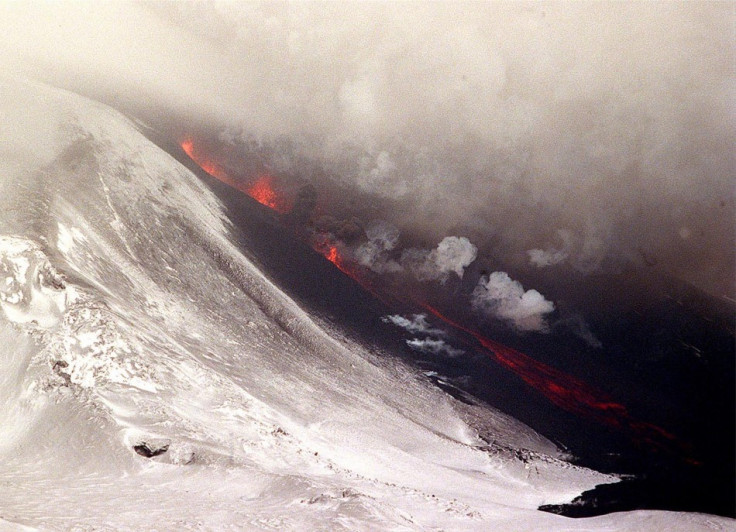Supervolcanoes Spewing Deadly Gases are the Greatest Hazard to UK

A Cabinet Office report has issued a stark warning of the dangers posed to Britain. Not by terrorism, economic collapse or global warming, but by the eruption of so-called 'supervolcanoes' in nearby Iceland. These hazards include extremes of cold in winter and heat in summer, catastrophic crop failure and deadly clouds of sulphur dioxide.
The Cabinet Office commissioned the study by scientists from the Met Office, universities and British Geological Survey (BGS), following the eruption of Iceland's Eyjafjallajokull volcano in 2010 which caused months of disruption for airlines because volcanic ash posed a threat to plane engines. The report will be presented at the European Geosciences Union meeting in Vienna.
Head of volcanology at the BGS Sue Loughlin, who will present the paper, warns that Eyjafjallajokull was a relatively small eruption and would be dwarfed by eruptions at other volcanic systems, which have erupted in the relatively recent past.

Loughlin's report warns that such eruptions, "typified by the Laki eruption in Iceland in 1783-84, have been identified as one of the three highest priority natural hazards faced by the UK."
Unlike with a traditional funnel-shaped volcano, the 1783 Laki event happened when a 17-mile fissure opened up in the Grimsvotn complex in the east of the island. This caused 130 craters along the crack to pump out 3.6 cubic miles of lava, sending lava fountains a mile into the sky.
The Laki event caused 120m tons of sulphur dioxide cloud to drift across the UK. Once inhaled it turns to sulphuric acid, which can cause fatal inflammation. Around 23,000 died in Britain – in an age when the population was far lower and there were far fewer older people. The consequences of "effusive gas-rich eruption" in a country of 63 million people could be truly disastrous.
In Iceland during 1783 the effects were even more devastating, with 80% of livestock being wiped out and crop failure causing 20% of the population to starve the death. Over the following years winters across Europe were exceptionally cold and summers blisteringly hot, and it has been suggested that the knock-on effects may have helped usher in the French Revolution of 1789.
The report found that major events at Grimsvotn and at Katla, a similar volcanic system, have occurred at least 40 times over the last 1,130 years. The government has now ordered the Met Office to monitor Iceland's active volcano systems.
Supervolcanoes aren't just found in Iceland, but around the world. Earlier this year there were fears of an eruption at the Yellowstone National Park, which includes a 55-mile-wide underground cavern holding vast quantities of molten rock. Scientists fear if it erupts the impact on climate could potentially threaten the existence of all human life on earth.
© Copyright IBTimes 2025. All rights reserved.






















